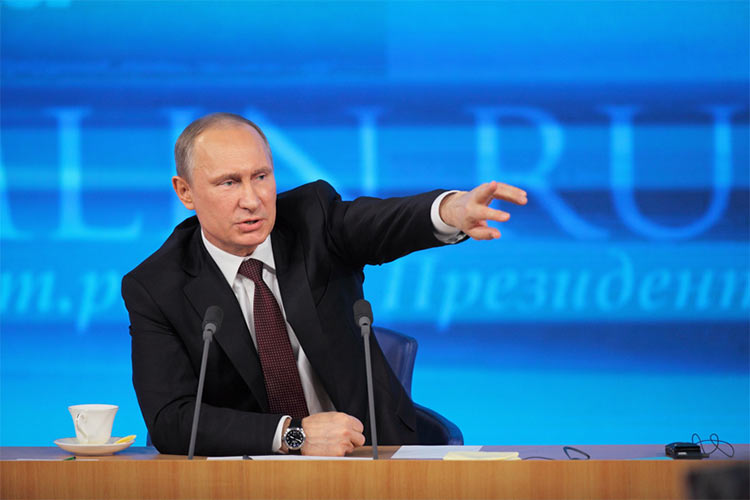
Photo: © Igor Dolgov | Dreamstime.com
Is Vladimir Putin a Fascist?
Alexander Motyl, Newsweek
Vladimir Putin uses rhetoric reminiscent of that used by fascist governments. But by calling the Russian government “fascist,” the West is putting it on the same level as the governments of Hitler and Mussolini, which are often thought of as the embodiment of pure evil. This is why the West tends to tiptoe around the topic and tread carefully with the terminology they use to refer to Putin’s Kremlin.
ISIS on the Move: Russia's Deadly Islamist Problem
Simon Saradzhyan, The National Interest
Russian media coverage of the conflicts and terrorist attacks in the North Caucasus has decreased of late. Russia’s economic crisis will increase tensions in the region and diminish the government’s ability to track terrorist attacks, and many of the region’s jihadists are involved with ISIS.
The Beginning of the End for Putin? Real Reform Begins to Take Hold in Ukraine
Greg Satell, Forbes
Despite Putin’s best efforts to keep Ukraine off the road to reform, the government in Kiev has been able to make changes that are slowly starting to have a real impact. The system is still in need of major restructuring, however. Official corruption continues to affect the daily lives of everyone in the country, and weeding it out will take a concentrated effort of the entire nation.
Is Vladimir Putin an Ideologue, Idealist, or Opportunist?
Walter Moss, History News Network
It may seem like Putin acts only in his own interests, but he is more than just an opportunist. He cares deeply about the fate of Russia and believes strongly in the idea that Russia is destined for greatness, no matter what the cost of achieving it. Putin’s speeches have made American conservatives realize he is quite similar to them in terms of ideology. Putin is also very concerned about the way the world views him and prefers always to appear stronger than his NATO counterparts.
Foreign Currency Protests in Russia: a Chance for Opposition?
Dmitry Florin, Open Democracy
Since the start of Russia’s economic crisis, there has been an increase in the number of people disappointed in the system. People whose mortgages were denominated in dollars are suffering disproportionately because of instability in the ruble exchange rate, and the government is not taking any direct action to help these people. The protesters have not aligned themselves with any opposition political force, however.
The Putin Principle: How It Came to Rule Russia
Karen Dawisha, World Affairs
Over the course of his time in power, Putin has systematically restricted people’s freedoms, but he has been able to silence those who oppose these measures by improving the country’s economy. He created an intricate system supported by oligarchs who back his decisions and give up some of their freedom in exchange for being allowed to keep and expand their fortunes.
This week's roundup was compiled by Seraphima Mixon, Liza Layer and Caitlin Thompson.

